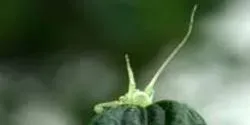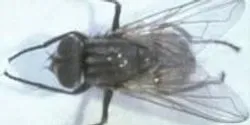insects

Scientists from North Carolina State University and the University of Florida have combined cookies, citizen science and robust research methods to track the diversity of ant species across the United States, and are now collaborating with international partners to get a global perspective on how ants are moving and surviving in the modern world.

As the human population grows, it is critical that the drain on the planet’s resources be lessened by decreasing consumption of animal protein. According to two panel discussions on June 23 and 24 at the 2014 Institute of Food Technologists (IFT) Annual Meeting & Food Expo® in New Orleans, insects are a promising, economically viable alternative source of high quality protein that leave a substantially smaller environmental footprint.

Although thousands of miles from the ice-sheets of Europe, the genetic record of bee species in the islands of the South Pacific carries evidence of the dramatic global effects of climate change over the past 20,000 years.

A collaborative experiment involving a Kansas State University biochemist may mark the beginning of an effective, environmentally friendly plant-based method of insect control.















